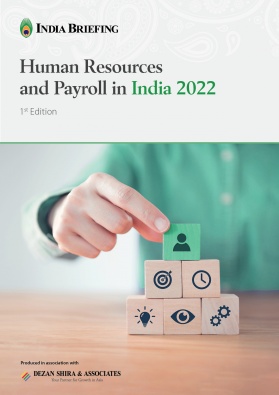Profiling the Indian SaaS Landscape – A US$1 Trillion Opportunity for Businesses
India’s rapidly digitizing business ecosystem has accelerated opportunities for the Software-as-a-Service (SaaS) segment within the information technology (IT) sector. Many reports project that India will soon become a global SaaS leader, propelled by factors like a large talent pool, enabling policies, increased access to capital, high market demand from SME firms, etc.
Software-as-a-Service (SaaS) is leading the next wave of disruption in India’s information technology (IT) sector. As India’s digital economy expands and more work spaces go into hybrid mode, there is a significant shift underway towards cloud-based platforms.
The Indian business landscape is currently home to more than 100 unicorn start-ups, with SaaS among the leading segments.
According to a report by venture capital firm Bessemer Venture Partners, the Indian SaaS market value is projected to reach US$50 billion by 2030. Another 2022 study, by EY and CII titled “India: The next global SaaS capital”, indicates that the Indian SaaS market will grow multi-fold by 2025 and accounting for a global market share in the range of seven to 10 percent, up from the current range of two to four percent.
Growth trends in the Indian SaaS landscape
A 2021 joint report by SaaSBOOMi-McKinsey titled “Shaping India’s SaaS Landscape” projects India to be “on the cusp of unlocking a US$1 trillion opportunity for SaaS companies by 2030”. The report states that software accounts for 20 percent of the total enterprise spending on technology but has a value creation of nearly 50 percent. The SaaS industry, which is currently US$2.6 billion in size is expected to multiply its revenue by 20 times by 2030, generating a revenue in the range of US$50-70 billion in the process.
Another 2022 report by Zinnov titled “India SaaS: Punching Through Global Pecking Order” suggests that Indian SaaS grew at a massive pace with over 1150 active firms, driving over US$8 billion revenue in 2021. It pegs the Indian SaaS industry to cross the US$100 billion milestone by 2026.
India is currently the third largest SaaS ecosystem in the world, behind US and China. The Zinnov report indicates that India is poised to overtake China to become the second largest SaaS nation by 2026, catapulted by enabling factors like pro start-up policies, global reckoning of Indian SaaS, abundant liquidity, huge domestic pool of digitally skilled workforce, and opening of multiple exit options for investors.
|
Snapshot of India’s SaaS Ecosystem |
||
|
|
2019 |
2021 |
|
SaaS companies |
Over 8000 |
Over 17000 |
|
SaaS funding |
US$2.6 billion |
US$6 billion |
|
Funded SaaS firms |
Over 1800 |
Over 2000 |
|
SaaS unicorns |
3 |
13 |
Classification of Indian SaaS ecosystem
The Indian SaaS ecosystem can be classified into three broad areas:
- Horizontal business software: It includes some noteworthy themes like enterprise collaboration, Human Resource (HR) tech, conversational artificial intelligence (AI), and events technology.
- Horizontal infrastructure software: It includes themes like cybersecurity, DevOps, data management, and data observability.
- Vertical business software: It includes Edtech, healthcare, logistics tech, and ecommerce enablement.
In India, recent disruptions, particularly pandemic-linked mobility restrictions, have accelerated SaaS adoption in the following key domains:
|
Domains |
Business ventures providing services in the domain |
|
Modernization of business workforce |
Veeva, Kissflow, Zenoti, Innovaccer, Rategain, Icertis |
|
Remote work enablement |
Zoom, Slack, Asana, Miro, Hopin, Zoho Remotely |
|
Developer tools/analytics infrastructure |
Atlassian, Splunk, Service now, Snowflake, Postman, Druva |
|
Digital supply chain |
E2Open, Xeeva, Assent, Tradeshift, Trax, Eka |
|
Distributed talent management |
Workday, Ultimate, Rippling, Culture Amp, Darwinbox |
|
Digital commerce |
Shopify, Woo Commerce, Magenta, Clever Tap, Algonomy |
|
Next-gen financial services |
Square, CRM Next, Toast, Refinitiv |
Investment in Indian SaaS
As per a report by Bain & Company titled “India SaaS Report 2021”, the investment in Indian SaaS companies increased by 170 percent in 2021, reaching roughly US$4.5 billion. In 2021, India had 35 SaaS companies with US$20 million+ annual recurring revenue (ARR). This equates to a seven-fold increase over the last five years.
As per the Zinnov 2021 report, SaaS categories such as sales and marketing, healthcare, human capital management, and infrastructure received maximum venture capital (VC) funding in 2021. In fact, the VC ecosystem was responsible for providing US$4.2 billion funding for SaaS start-ups in 2021, projected to cross US$6.5 billion in 2022.
|
Notable B2B SaaS Funding in 2021 |
||
|
Company |
Deal value |
Investor |
|
Postman |
US$225 million |
Insight Partners, Coatue, Bond Capital and Battery Ventures |
|
Browser Stack |
US$200 million |
Accel, BOND and Insight Partners |
|
Chargebee |
US$125 million |
Sapphire Ventures, Tiger Global and Insight Partners |
|
Innovaccer |
US$105 million |
Tiger Global, Steadview Innovacer US$105m Capital, Dragoneer, B capital, Mubadala Capital and M12 |
|
Mindtickle |
US$100 million |
SoftBank |
|
Zenoti |
US$80 million |
TPG |
Source: EY-CII Report
What is driving growth in the Indian SaaS market?
The report by Bessemer Venture Partners identifies the following macroeconomic factors driving SaaS innovation:
- Increasing smartphone userbase for business purposes in India
- Rapid acceleration of digitization
- Emergence of universally accepted digital rails across industries
The SaaSBOOMi-McKinsey report identifies the shift to digital go-to-market (GTM) by businesses as the primary driving force for SaaS enterprises – it has enabled customer interaction via digital channels and reduces the need to hire GTM teams abroad. This ability to effectively engage customers pre- and post-sale has the potential to kickstart revenue engines from local offices, saving time and costs in the process.
The EY-CII report identifies India’s small and medium businesses (SMB) sector as the major propellor for SaaS expansion in India. Indian SaaS start-ups today cater to a large market of small businesses and digital native start-ups and this rising market demand is accompanied by a facilitative policy environment. Indian SMBs are exploring the cloud to increase business agility and build capabilities to perform tasks that would have been time consuming and cost-prohibitive for legacy technology. A 2021 International Data Corporation (IDC) survey indicates that over the next few years, SMBs in India intend to increase their percentage of workload on cloud.
According to data estimates, the Indian SMB sector offers a US$8.7 billion market opportunity for horizontal SaaS solutions by 2025 — a 52 percent growth from the estimated market in 2020. Retail, manufacturing, and education are expected to account for almost half of the total market opportunity. Finance, accounting, and payment systems are the more popular SaaS solutions among SMBs, while there is an increasing adoption of CRM, ERP, and marketing-focused solutions.
Source: Datalabs by INC42
Facilitative policy environment for growth of SaaS start-ups in India
While SaaS is yet to be a target area for government incentives, the federal government has introduced a slew of measures to bolster entrepreneurship and assist emerging start-ups financially.
India has been promoting cloud adoption in the country through project MeghRaj (launched in 2014) to accelerate delivery of e-services and has established a vision to develop India as a global cloud computing hub.
National Policy on Software Products
In 2019, the Union Cabinet approved the National Policy on Software Products to develop India as a software product nation. This policy envisions synergy with the IT/ITeS sector to make India a global hub for development, production, and supply of innovative and efficient software products, thus facilitating growth across the entire spectrum of information and communication technology (ICT). This policy:
- Promotes business ecosystem
- Indian Software Product Registry (ISPR), a common pool of Indian software products
- Single window platform for fast-tracking legal and regulatory issues
- Classification system for software products
- Encourages entrepreneurship and innovation
- Incubation program for 10,000 start-ups
- Dedicated software product development fund worth INR 10 billion
- Research and innovation program of INR 5 billion
- Enables skilling and HR development
- FutureSkills program to reskill three million IT professionals in emerging tech
- National Talent Accelerator Program targeting 100,000 students
- Facilitates increased access to markets
- Integration of ISPR with government e-marketplace (GeM) to streamline product procurement for SaaS
- Special focus on Indian software products in international trade development programs
SAMRIDH Program
The Ministry of Electronics and Information Technology (MEITY) has also initiated multiple initiatives to promote Indian software products ecosystem, such as the Next generation Incubation Scheme (NGIS), MEITY Start-up Hub (MSH), and Start-up Accelerator Programme of MEITY for Product Innovation, Development, and Growth (SAMRIDH). The SAMRIDH program aims to support existing and upcoming accelerators to select and accelerate potential product-based start-ups to scale. The key initiatives under the SAMRIDH program include:
- Inviting applications from accelerators for partnership with MEITY and provide start-ups accelerator programs of six months every year.
- Plans to support around 300 tech start-ups through about 40 cohorts of around eight to 10 start-ups.
- Committed investment of up to INR 4 million based on growth stage of the start-up.
Relevant Union budget 2022 provisions
The Union Budget 2022 provided impetus to enable a favorable environment for the start-up and digital services ecosystem. It stipulated following incentives:
- Extension of tax incentives for start-ups from three to four years of incorporation.
- Extension of capital gains tax exemption for investments in start-ups by one year.
- Proposal to cap surcharge on long term capital gains at 15 percent.
- Digital ecosystem for reskilling and upskilling citizens through online training.
- Open platform for the National Digital Health Ecosystem.
About Us
India Briefing is produced by Dezan Shira & Associates. The firm assists foreign investors throughout Asia from offices across the world, including in Delhi and Mumbai. Readers may write to india@dezshira.com for more support on doing business in in India.
We also maintain offices or have alliance partners assisting foreign investors in Indonesia, Singapore, Vietnam, Philippines, Malaysia, Thailand, Italy, Germany, and the United States, in addition to practices in Bangladesh and Russia.
- Previous Article Digital Rupee Pilot Launch by the RBI on November 1, Targeting Wholesale Segment
- Next Article Business Opportunities in the Indian Solar Energy Sector











